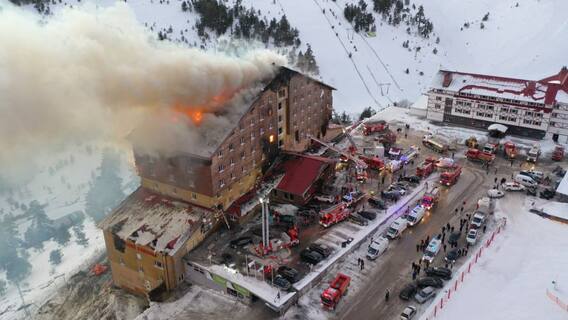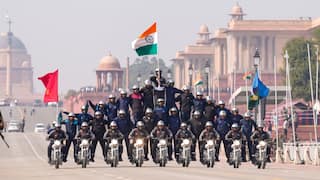Toyota Yaris CVT vs Hyundai Verna Automatic vs Honda City CVT – Real-World Performance Compared

Expecting the Verna to be the quickest because of its biggest 1.6-litre engine? The results will surprise you.
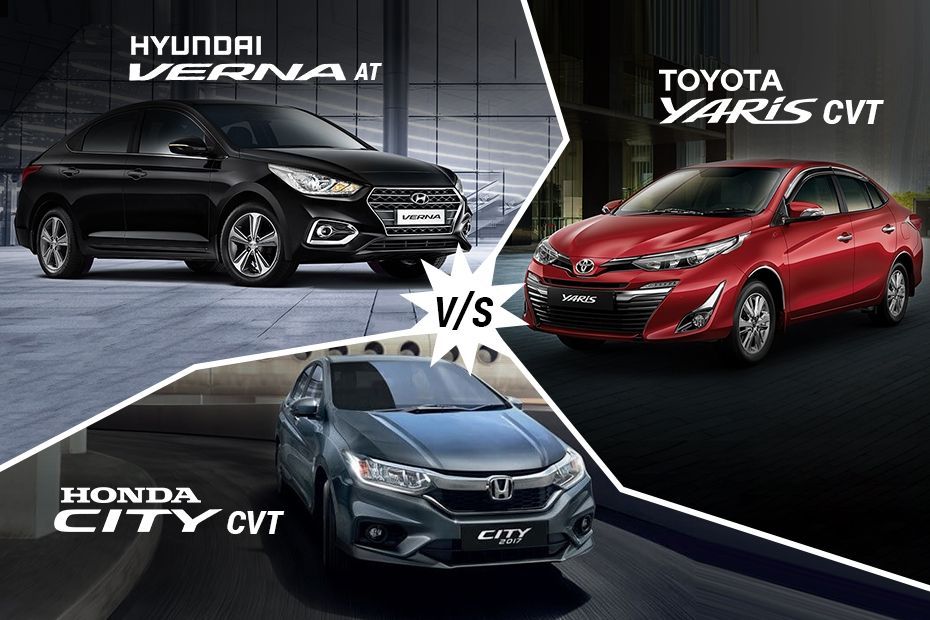
With the Toyota Yaris entering the midsize sedan segment in April 2018, the competition in the segment has gone a notch higher. While we’ve already done a spec comparison of the Yaris with the Honda City, the Hyundai Verna & the Maruti Suzuki Ciaz, the on-paper figures are not always a true reflection of the actual performance. So here’s a comparison between the petrol-automatic versions of the Yaris, City and Verna based on their real-world performance as tested by us.
Engines

*Specs of the particular variants tested by us
Powering the Toyota is a 1.5-litre petrol engine which pumps out max power of 108PS and max torque of 140Nm. With a similar capacity engine, the City produces 119PS of power and 145Nm of torque. The Hyundai Verna gets the biggest petrol engine by capacity – 1.6-litre – which helps it garner maximum power and torque figures (123PS/151Nm). While the Yaris and the City get a CVT transmission, the Verna gets a 6-speed torque converter.
Must read: 2018 Maruti Vitara Brezza AMT vs Tata Nexon AMT: Specifications Comparison
Performance
Acceleration
In our real-world tests, despite being the most powerful car on paper, the Verna wasn’t the quickest to breach the 100kmph mark from standstill. At 12.04 seconds, it stood second. The Yaris AT was the slowest of all with the 0-100kmph figures reading 13.39 seconds. The quickest was the Honda City that managed it in 11.90 seconds.
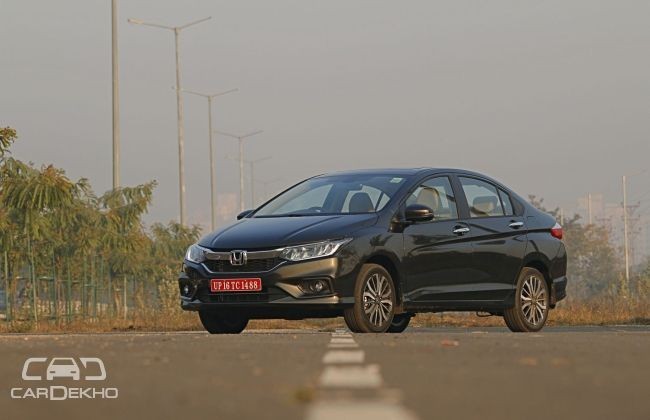
Braking
The slowest car to accelerate is also the slowest to halt – the Yaris. And it’s surprising too because it’s the only car in this test that gets disc brakes all around whereas the other two get them at the front only (drums at the rear). All three cars are packed with anti-lock braking system (ABS) with electronic brake-force distribution (EBD).
It takes 3.37 seconds for the Yaris to completely stop from 100kmph and it does it in 43.61m. The Hyundai Verna does the same in 2.96s, but covers 42.19 metres of ground. The City takes the second spot at 3.20 seconds but manages to be the best in terms of distance it takes to stop – 41.14m. That is nearly 1m less distance than the Verna & over 2m than the Yaris! The braking distance is a crucial factor when it comes to avoiding collisions under emergency braking.
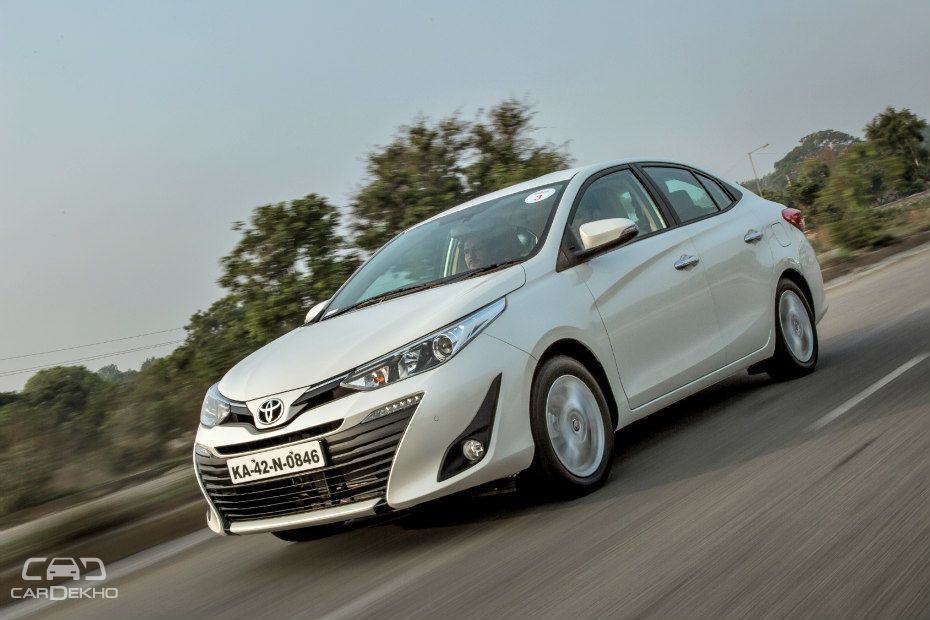
Prices
Here are the prices of the variants with automatic transmission:
|
Toyota Yaris |
Hyundai Verna |
Honda City |
|
Rs 9.95 lakh (J) |
Rs 10.56 lakh (EX) |
|
|
Rs 11.76 lakh (G) |
|
Rs 11.72 lakh (V) |
|
Rs 12.90 lakh (V) |
Rs 12.56 lakh (SX-O) |
Rs 13.02 lakh (VX) |
|
Rs 14.07 lakh (VX) |
|
Rs 13.70 lakh (ZX) |
This comparison is based on our road-test data. If you want to know more about these cars, you can let us know via the comments section below.
Recommended: Toyota Yaris CVT vs Hyundai Verna Automatic: Real World Mileage Comparison
Read More on : Yaris on road price
This Story has not been edited by ABP News. It has been published through cardekho.com feed directly.
Trending News
Top Headlines










